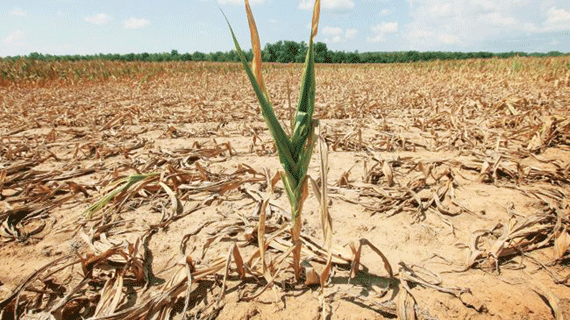
HUNDREDS of food-insecure villagers in Hwange have appealed for urgent food aid from grovenment after the World Food Programme (WFP) pulled out of the drought-prone district at a time food shortages have peaked in Matabeleland North province.
By Nokuthaba Dlamini
Victor Chuma, the headman for Cheziya Village, said WFP officials announced during a food distribution exercise at Deka Mouth last week that the donor agency was winding up its operations in the district.
He said WFP said it was making its final distribution to Mwakwa, Simangani, Mwemba, Kasase and Cheziya, among other villages.
“We met at Hwange Zambezi a few days ago, where people were given their last handouts,” Chuma said. “We were told that the funding was no longer adequate and since people will be harvesting in the coming months, WFP said it was advisable that they fend for themselves.
“However, most of us did not and will not harvest anything, as you know rains came late and as a result people only reaped water melons.”
He said at least 100 people under his jurisdiction relied on the food aid non-governmental organisation’s handouts and the pull-out meant they would starve.
“It is very depressing because more than a hundred people in my area rely on the scheme, but donors are saying people are lazy and they must learn to work for themselves,” Chuma said.
- Chamisa under fire over US$120K donation
- Mavhunga puts DeMbare into Chibuku quarterfinals
- Pension funds bet on Cabora Bassa oilfields
- Councils defy govt fire tender directive
Keep Reading
One of the Mwakwa village heads, Martin Shoko, said many people, who were eligible for the scheme, were terminally ill and unable to fend for themselves.
“Many people, who had been on the scheme, are those on anti-retroviral treatment and the disabled,” he said.
“They cannot do anything for themselves, unlike orphans who can try to fend for their families.” Shoko said children in his village were dropping out of school in large numbers because of hunger.
The United Nations last week said 6 000 children in Matabeleland North had stopped attending school because of starvation and Hwange is one of the hardest hit districts.
“Many students in my area have quit school because of hunger and we feel this is a great loss, considering that there is nothing to harvest this time,” Shoko said.
“Even though they (WFP) came once after some months, it was better than pulling out completely because more than a thousand households relied on them.”
Shoko said those enrolled on the WFP scheme received a 750ml bottle of cooking oil, a 2kg packet of pulses and 6kg of mealie meal per individual monthly.
Chief Hwange said although he did not attend the last food distribution, where the WFP pull-out was announced, he had been informed about the development.
Orap distributed the handouts on behalf of WFP, but the non-governmental organisation’s public relations officer, Mvuselelo Huni could not give more details about the status of the scheme in Hwange.
“I cannot comment on that. Remember, Orap does not stand alone,” she said yesterday.
“We are under WFP and all the comments must come from them. Ask them, they will be able to tell you what the cause (of the pull-out) was.”
WFP had, by the time of going to print, not responded to questions emailed to them last week, but the agency recently said this year — for the first time ever — it would be forced to continue its seasonal relief throughout the year because of the severity of the El Nino-induced drought.
WFP’s seasonal relief programmes are usually meant to help vulnerable people through the pre-harvest months, from October to April.










